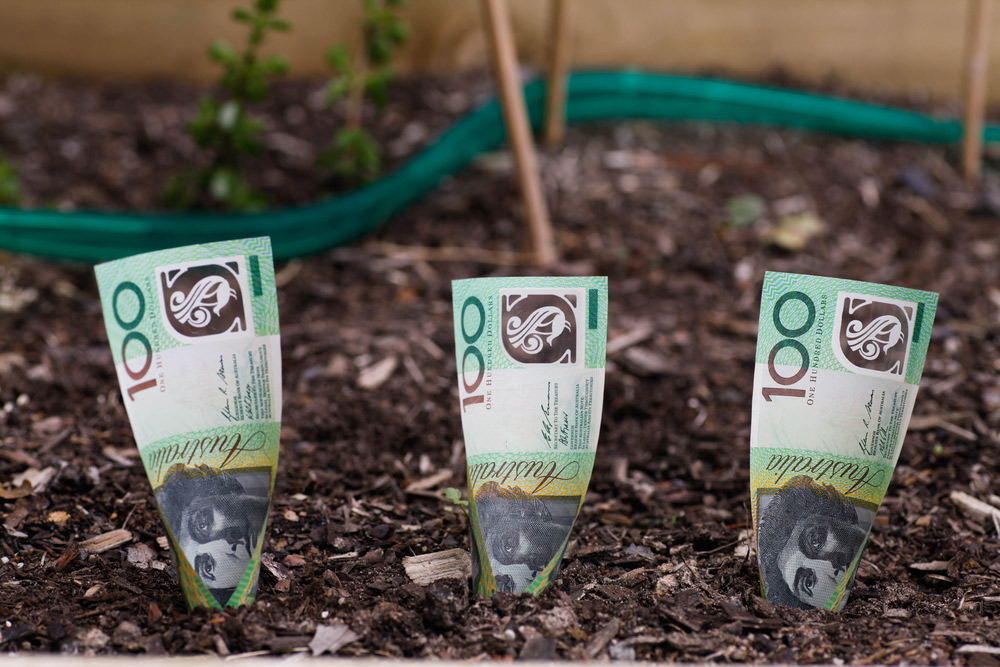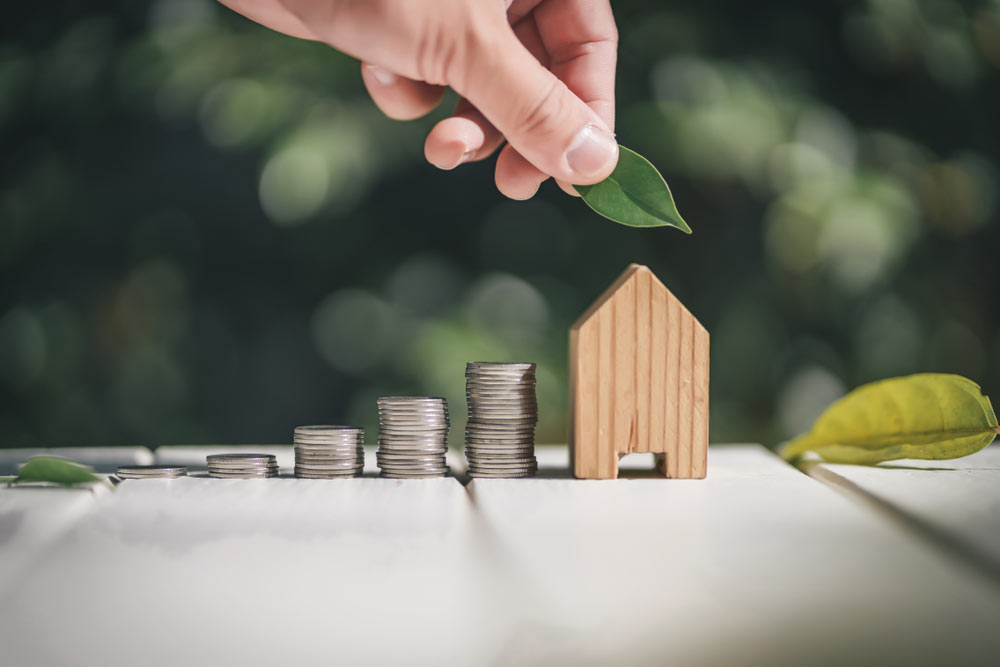
Economy Bounce-back Better Than Expected, What Investors Need To Know
It’s not only the great weather and beautiful beaches that make Australia the envy of the world – it’s also our strong economy which is currently kicking some serious butt compared to many of our global counterparts.
Bouncing back much faster – and stronger – than predicted post-COVID, the Reserve Bank of Australia (RBA) is anticipating a good end to 2021, and a great 2022.
But with so much uncertainty over the last 12 months, it’s hard to know if this economy is here to stay, and if so, how it will impact property investors in the long-run.
WHAT DO THE NUMBERS SAY?
In May this year the RBA updated its economic calculations, estimating that instead of growing by 3.5%, the GDP will actually increase by 4.75% in 2021. It also stated that the jobless rate will likely drop from 5.6% to 4.5% by the end of 2022.
In simple language? Let’s break it down.
The GDP – gross domestic product – is the amount of money made from all goods and services in a specific time, in this instance, 12 months.
The greater the GDP, the stronger the economy. An active, vibrant economy means more jobs and less unemployment.
In short, Australia’s economy is in good shape and is creating more jobs.
This is surprising, because of the devastating impacts of COVID-19 on other global economies, and important, because Australians are facing a rise in inflation and continually rising house prices.
Inflation – when the price of goods or services go up – occurs when there is a lack of stock. We are seeing this now as the cost of bringing goods into Australia from overseas has drastically increased post-COVID.
So, while the Australian economy is doing well and more of us are employed, the cost of living is rising faster than our wages, and house prices show no sign of dropping.
WHAT DOES THIS MEAN FOR PROPERTY INVESTORS?
There are pros and cons for property investors as a result of a strong economy, low interest rates and rising house prices.
With some state-linked incentive programs ending, there has been a drop in first-home buyers. This gives investors greater access to stock and less competition at auctions.
The downside is that with borrowing being so cheap, smart home owners and real estate agents are inflating the cost of their property, meaning we are paying more for a property than we would have a few months ago.
It’s important that property investors take the cost of investing and servicing loans, and the rising cost of living, into account when purchasing properties.
Significant wage increases to ease the effects of inflation are still some way off, and if people’s wages don’t rise, rents can’t rise. If investors can’t increase rents, we can’t increase cash flow and it will be harder to purchase further properties, gain a passive income and decrease any debt.
Before you buy, make sure you know your numbers, can service your loans and have a buffer for each property in case your own situation changes.
WHAT DOES A SMART INVESTOR STRATEGY LOOK LIKE NOW?
Changes in economies and national and global markets aren’t a reason to change your investment strategy.
But, some of the golden rules of real estate investment become even more important when you take all of these factors into account.
One such rule is location. While we always need to buy property in a location with good infrastructure, high liveability and walk scores, and appealing green space, in the face of rising inflation, certain locations are less volatile than others.
A general rule of thumb is, the older the suburb, the less volatile. This is because older Australians have paid off more of their debt. In newer locations, people tend to have bigger mortgages and high debt, so are more sensitive and vulnerable to rate adjustments.
Another golden rule is quality of tenant. As investors, it’s going to be harder to pass on the cost of a rates rise via rent increases to tenants whose wages aren’t increasing. Buying property in more affluent areas, where worker’s skill sets are adaptive, will allow for rent increases, despite inflation.
Overall Australia is in great shape, but it’s important to stay informed about how economic factors can affect property investment.
GOOD STRATEGY IS BASED ON KNOWLEDGE
You can’t build a solid strategy on guesswork. It’s about understanding the current market landscape and how to optimise it for long-term and sustainable growth.
Get started at our free property investing seminar.
Here we can discuss what other trends will impact your real estate in this new age and how to determine the right plan for you.
Spaces are limited so register now.
Before equity lock, comes equity. Equity happens when your property is worth more than you paid for it. Maybe the average area price has gone up thanks to an improvement in local infrastructure, or there’s a lack of stock so people suddenly need to pay more to live in your location.
Whatever the reason, your property is now worth more than you spent buying it.
Capital growth, as we’ve said before, is a vanity exercise. It’s great to swan around feeling smug that your $450,000 apartment would now sell for $500,000. But unless you do something about it, how does it really serve you?
Equity lock is the one financial tactic that a property investor needs to know how to use to grow their portfolio faster.
Once your property has equity, the smart thing to do (making sure you can still service the loan) is to revalue the property and draw out the increased amount. Property investors then use that cash as a deposit on the next one or two properties, which also yield rent income and capital growth.
IS THERE FALSE EQUITY?
Markets are constantly changing. Over the 20 years that you own a property you can expect the value to go up, go down and plateau. That’s how real estate works.
So, imagine if impacts like COVID-19 or a lack of stock or low interest-rates, push up the value of your property, above what even you think it’s really worth? Even if you eventually lose some of that capital growth and have to wait a few years to get it back, as long as you can service your loan, you still need to act fast and lock your equity in.
Property investors don’t live on capital growth. The income from rent and regular increases in that rent is what allows people to work a three day week. The more properties you own, the greater the passive income.
Locking in equity means you can buy a second, third or fourth property that much faster, which equates to more passive income.
SOURCE: RBA more bullish on economy as it holds rates at record low (smh.com.au)
GETTING STARTED
Let our property investment company teach you about equity lock and how to make it work for you at one of our free property investing seminars.
Sign up for one of our information and education events, where you’ll be equipped with the tools, resources and support to thrive, and not fall behind on your path to financial freedom – whatever that may look like for you.
Book your spot now and find out what you need to know about the current market landscape and how you can make it work for the ultimate wealth creation opportunities.
Recent Articles
$87K Made In 12 Weeks Through Renovation! What’s Stopping You Making Money?
Do you know everyday Aussies are making huge profits RIGHT NOW! If you wish to find out exactly how they are doing it then today’s video is a MUST-SEE! It is amazing how economic and financial experts and the media can easily influence your financial decisions so readily, which can cause analysis paralysis and prohibit you from actually making money through property investing.
3 Simple Steps To Grow Your Wealth With Property
The concept of property investing is quite simple, however, the actual process can sometimes be complex. This is why we surround ourselves with knowledgeable individuals – to learn from their experience.
3 Simple Rules To Joint Venture Success
Sometimes it pays to go it alone when investing in property. Sometimes it doesn’t. Knowing what to do if you choose to partner up with others to invest by means of a joint partnership is vital to your success – both in terms of finances and relationships.
2 Key Tips To Profitable Property Investing You Might Be Missing
Getting started as a property investor can be quite daunting. This is due in part to fear of the unknown. There is no lack of information available to beginning property investors, but not all information is created equal. In other words, some of it is completely wrong.
4 Clues A Market Is Boom Ready
Property markets move in cycles; moving from the bottom, through the growth phases and back to the bottom over a seven to ten year time period.
10 Top Tips For Off-The-Plan Property Investments
ew property investors are often intimidated by the process of buying an investment property “off-the-plan”, however knowledge is a powerful tool in that not only can it help you navigate the purchasing process.
10 Things You Must Know Before Becoming Financially Free
Building a multi-million dollar portfolio is not as hard as you might imagine. In fact, it can be achieved in as little as 10 to 15 years. All it takes is a bit of planning combined with knowledge and support from others who are where you want to be.
$100K Plus In Equity And Positive Cashflow Properties
Prior to joining Positive Real Estate, John owned a 3 bedroom home and a block of land in Adelaide and Amy co-owned a 2 bedroom home on the Central Coast of NSW. Since starting with Positive Real Estate in November of 20008 they have purchased two additional properties.
How Can Investors Educate Themselves Properly? – Your Weekend Project Challenge
“Here’s a challenge, go to an open home and see how many people will be buying real estate based on an emotional decision,” suggests Positive Real Estate’s CEO Sam Saggers, on Smart Property Investment segment, The Weekend Project.












